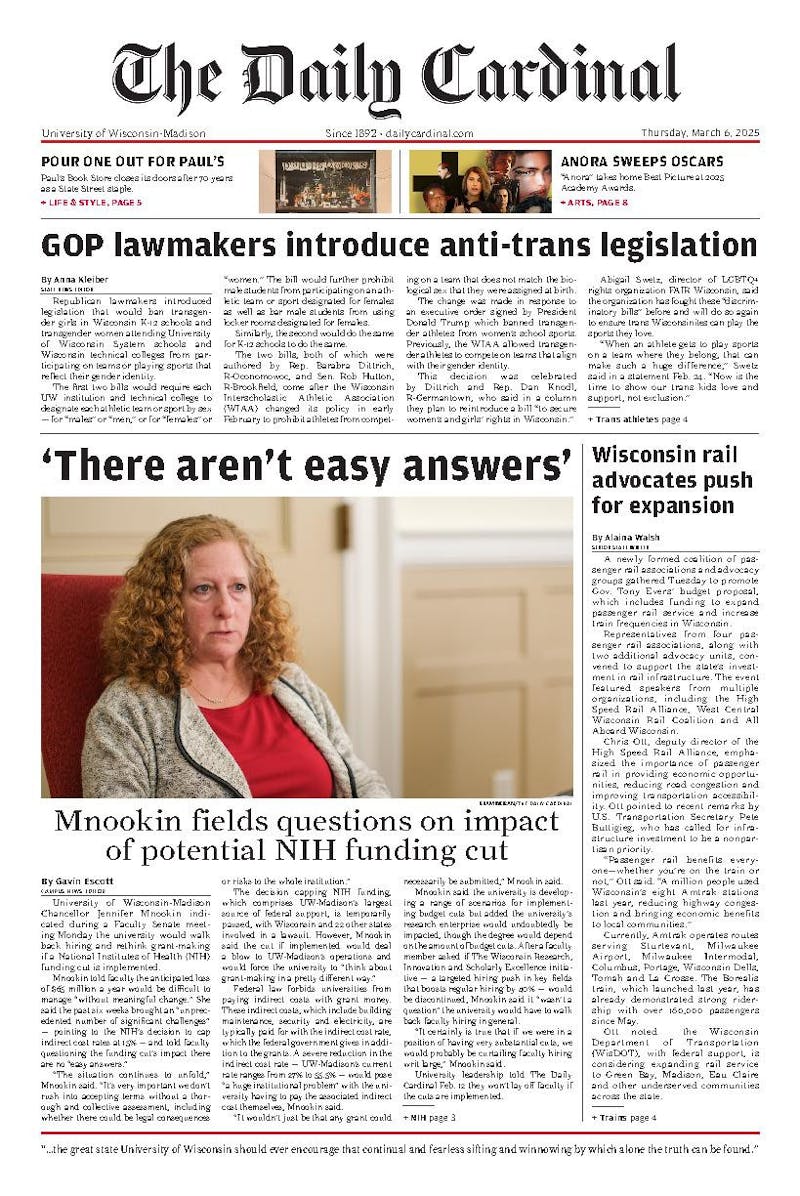Though it has many misconceptions, nuclear energy has many benefits, according to award-winning author Michael Shellenberger, who discussed the topic in a lecture Tuesday.
Shellenberger, a pro-nuclear environmentalist has co-authored multiple books, including “The Death of Environmentalism,” “Break Through,” and “An Ecomodernist Manifesto.” He has been an advocate for environmental and social justice for more than 25 years.
His lecture, part of the Distinguished Lecture Series, pertained primarily to the issue of clean energy resources and the use of nuclear power and energy. Shellenberger said even though renewable energy is a fantastic resource, entire cities, such as Shanghai, cannot be sustained by solar and wind energy alone.
“[Solar and wind energy] needs a lot of power, at night, reliable, at night, and if it’s not going to be nuclear, then it’s going to be fossil fuels,” Shellenberger said.
On top of that, the returns of renewable energy usage is not always beneficial, the author explained. Germany received 1 percent less electricity from solar in 2016, yet they had a 4 percent increase in solar energy usage.
Shellenberger said an advantage nuclear energy holds is that it is essentially limitless in comparison to fossil fuels like coal or oil. He explained fossil fuels are nonrenewable resources, which means they will eventually become depleted after enough exploitation.
However, nuclear energy can continue to be harvested for an unprecedented amount of time, saving the hassle of looking for new resources to make up for the loss of fossil fuels.
Shellenberger said he believes the solution to the limitations of renewable energy can be solved by nuclear energy. However, nuclear energy as a resource is not very popular.
“People are afraid of [nuclear power],” Shellenberger said. “That’s the reason they don’t like it. They think it’s dangerous.”
He said people’s fears are not unfounded and cited the accident of Chernobyl—a nuclear disaster that occurred in 1986 that resulted in 28 deaths and 4,000 casualties, according to the World Health Organization. Multiple other nuclear meltdowns have occurred since then, such as Fukushima and Three Mile Island. As a result, people fear nuclear reactors due to the safety of their lives as well as their children’s.
Since the use of nuclear energy is relatively new, Shellenberger said there is still a lot of ignorance surrounding the topic. But, the more widespread nuclear power becomes, the hope is that more people will become educated on all of the benefits and risks that this resource can provide.
“[Nuclear energy] is about the people, it’s not about the machines,” Shellenberger said. "[I] wanted people to see the why in nuclear.”






